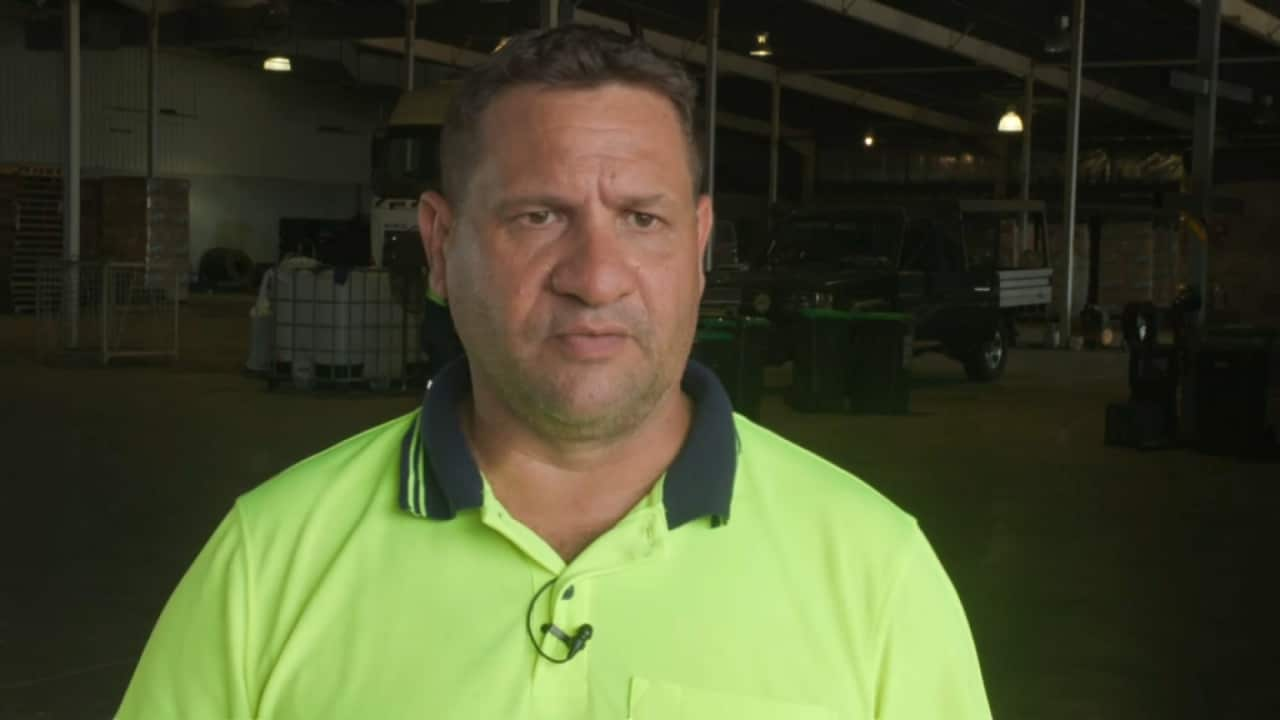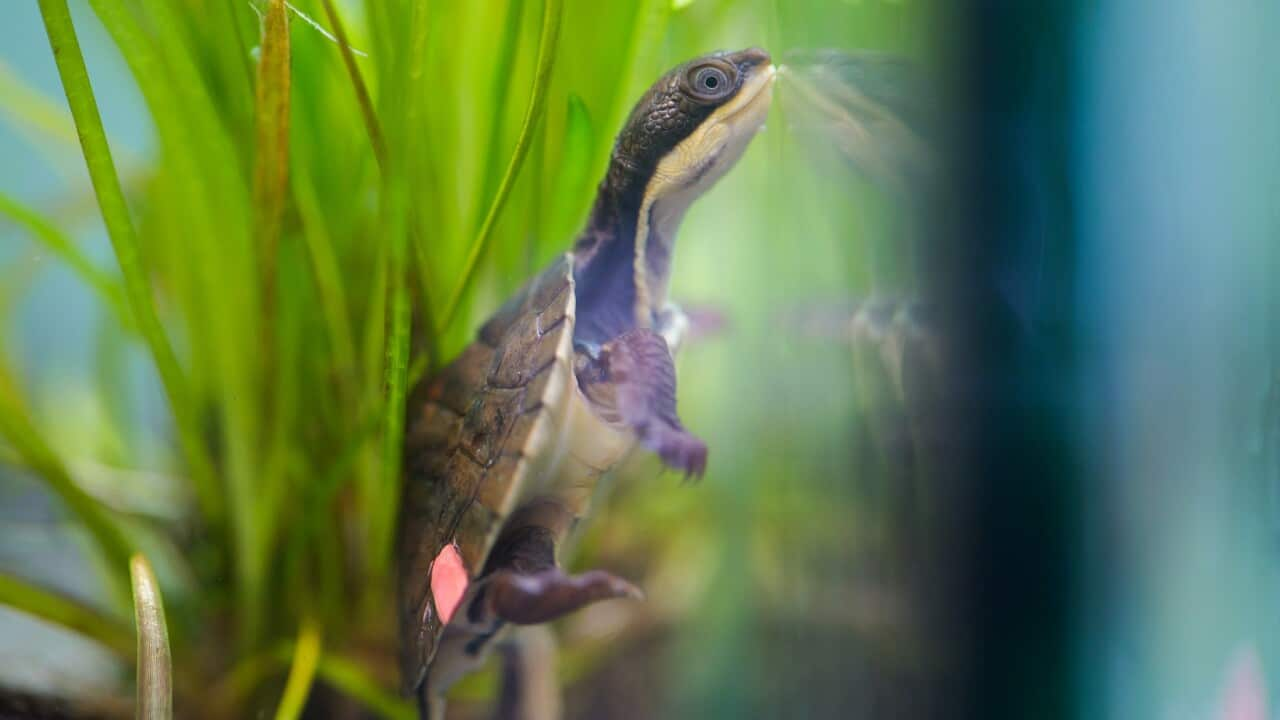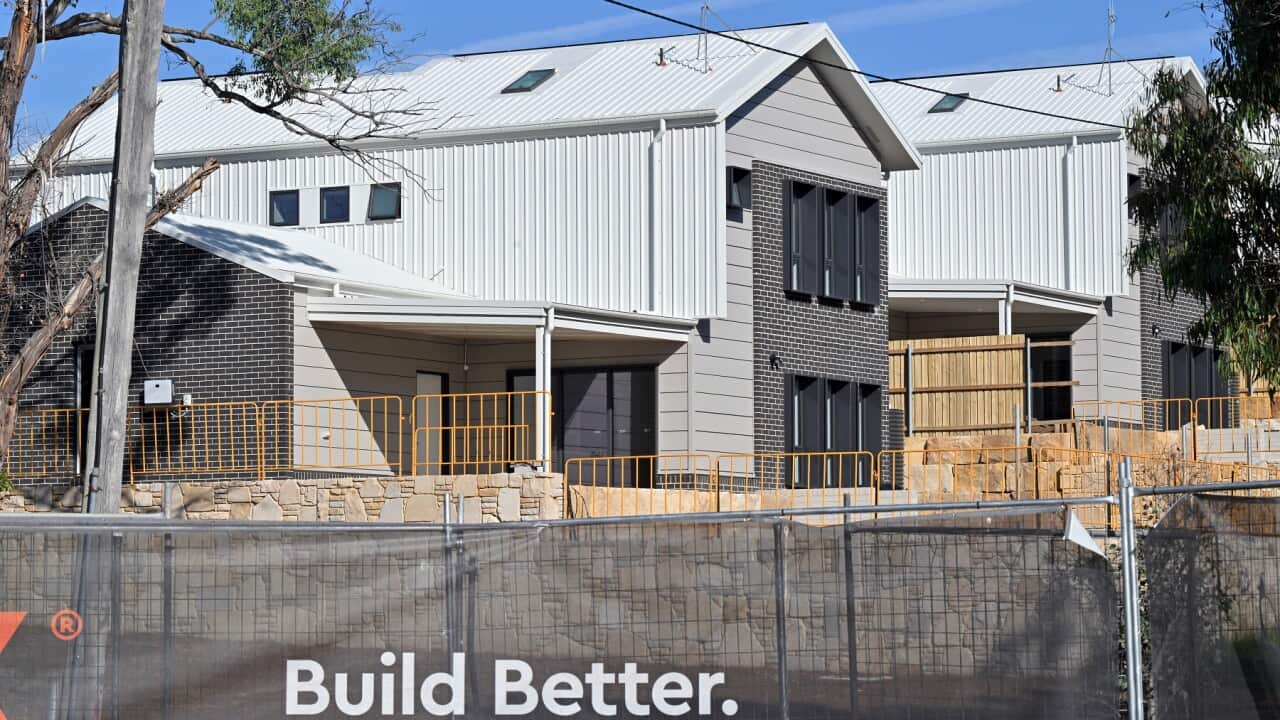Italiano
Un'azienda del Northern Territory sta sperimentando un nuovo modo per sottrarre i rifiuti alimentari alle discariche.
EcoMob - impresa gestita da manager aborigeni - utilizza la disidratazione per trasformare gli scarti in terreno ricco di sostanze nutritive, con la speranza che presto la stessa tecnologia possa essere utilizzata per sostenere l'economia locale.
Billy Feeny è il proprietario del primo impianto di disidratazione dei rifiuti alimentari di Darwin e spiega come procede la giornata lavorativa nell'impianto.
"What we do is empty the bins, put the waste on sorting tables and then we process the food from there. So we get all the contamination out, so your plastics, any rubber bands, paper clips, cutlery.
Una volta selezionati, i rifiuti alimentari vengono introdotti in disidratatori che li trasformano in un sottoprodotto denso di sostanze nutritive che può arricchire il terreno.
Dopo una sperimentazione di successo durata 12 mesi, grazie a contratti con le basi di difesa locali, EcoMob sta ora pianificando di espandere le proprie attività.
David Feeny afferma che questa sarà una vittoria per i dipendenti e la comunità locale, oltre che per l'ambiente.
"[It] gives them an opportunity to come in and work for five, six hours, gives them an ability to drop their kids off, come in and work, then go back and pick their kids up because childcare is quite expensive. But it's an opportunity for our mob to come in and learn what we do and help. We are trying to heal Country here and divert it from landfill and use it as a product to put back into the ground."
Brian Morris è in pensione ma lavora part-time nell'azienda. Il cibo che finisce nei rifiuti lo stupisce.
"A whole rump, a whole chicken, a corn beef whole, why throw it away? They could put it in Tupperware containers and put it in the streets. But we take it and turn it into fertiliser so we are not wasting it."
Ogni anno gli australiani sprecano più di 7 milioni di tonnellate di cibo, con un costo economico di circa 36 miliardi di dollari.
Billy Feeny spera che la sua impresa possa fare una piccola differenza.
"You gotta start somewhere, so small steps. Hopefully we get into bigger steps and we start diverting a lot more food waste. I think they tak around 30 to 32 per cent of landfill waste is food. Food causes a lot of the problems in landfill, especially around methane, carbon dioxide releases and stuff like that."
Attualmente sono in corso dei test sul compost prodotto da EcoMob, per determinare il modo migliore di utilizzarlo.
Billy Feeny spera di creare un fertilizzante per le piante che contribuisca ad alimentare l'economia locale.
"It would be great for local communities, local farmers, local producers because at the moment they do get a lot of their produce from down south to do what they do. So to be able to supply local content would be great."
Dal piatto alla pianta, salvando il cibo dalla discarica un bidone alla volta.
Inglese
A NT company is experimenting with a new way to divert food waste from landfills.
EcoMob-an enterprise run by Aboriginal managers-is using dewatering to turn waste into nutrient-rich soil, with the hope that soon the same technology can be used to support the local economy.
This is Darwin's first food waste dehydration facility and owner Billy Feeny is overseeing the operations.
"What we do is empty the bins, put the waste on sorting tables and then we process the food from there. So we get all the contamination out, so your plastics, any rubber bands, paper clips, cutlery.
Once sorted the food waste is piled into dehydrators that churn the food into a nutrient dense by-product that can enrich soil.
After a successful 12-month trial through contracts with local defence bases, EcoMob is now planning to expand its operations.
David Feeny says this will be a win for its local indigenous employees.
"Gives them an opportunity to come in and work for five, six hours, gives them an ability to drop their kids off, come in and work, then go back and pick their kids up because childcare is quite expensive. But it's an opportunity for our mob to come in and learn what we do and help. We are trying to heal Country here and divert it from landfill and use it as a product to put back into the ground."
Brian Morris is semi-retired but works part time at the company. He's amazed by the food that ends up in waste.
"A whole rump, a whole chicken, a corn beef whole, why throw it away? They could put it in Tupperware containers and put it in the streets. But we take it and turn it into fertiliser so we are not wasting it."
Every year Australians waste more than 7 million tonnes of food across the supply chain, costing the economy around $36 billion.
Billy Feeny says he hopes his business will make a small difference.
"You gotta start somewhere so small steps, hopefully we get into bigger steps and we start diverting a lot more food waste. I think they talk around 30 to 32 per cent of landfill waste is food. Food causes a lot of the problems in landfill, especially around methane, carbon dioxide releases and stuff like that."
Testing is currently underway on the nutrient-rich compost produced by EcoMob, to determine how best to use it.
Billy Feeny hopes to create a plant fertiliser that will help feed the local economy.
"It would be great for local communities, local farmers, local producers because at the moment they do get a lot of their produce from down south to do what they do. So to be able to supply local content would be great."
From plate to plant, saving food from landfill one bin at a time.











